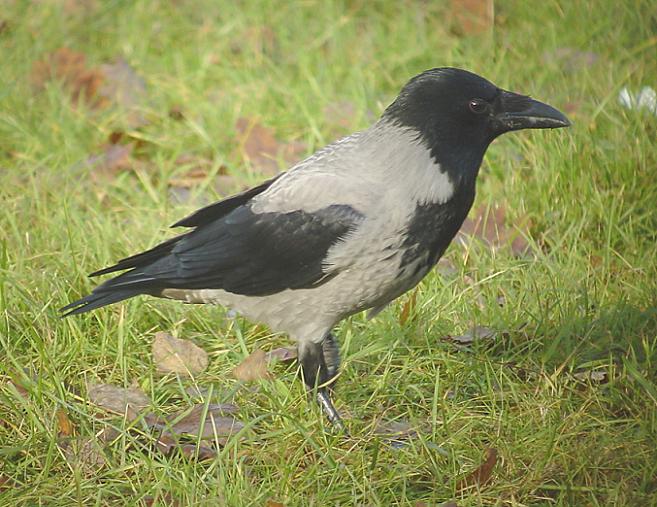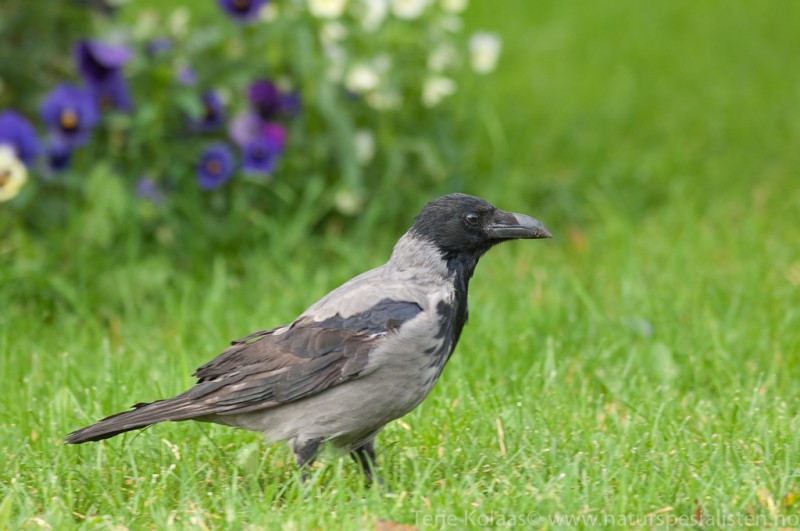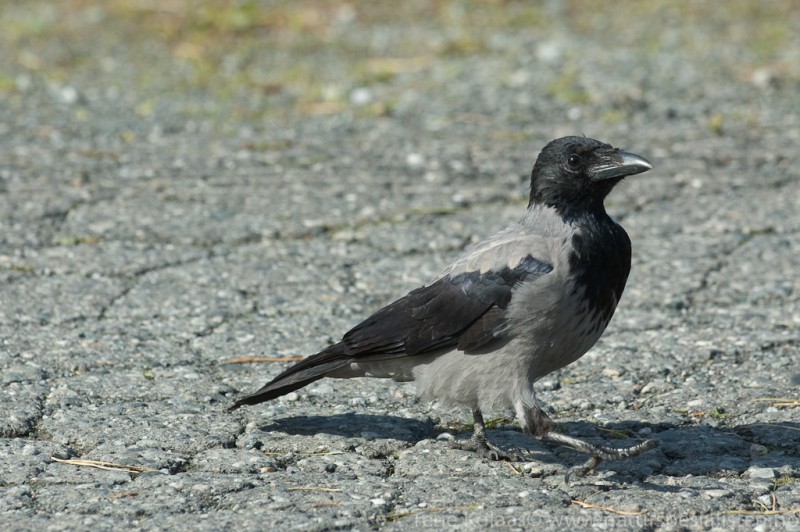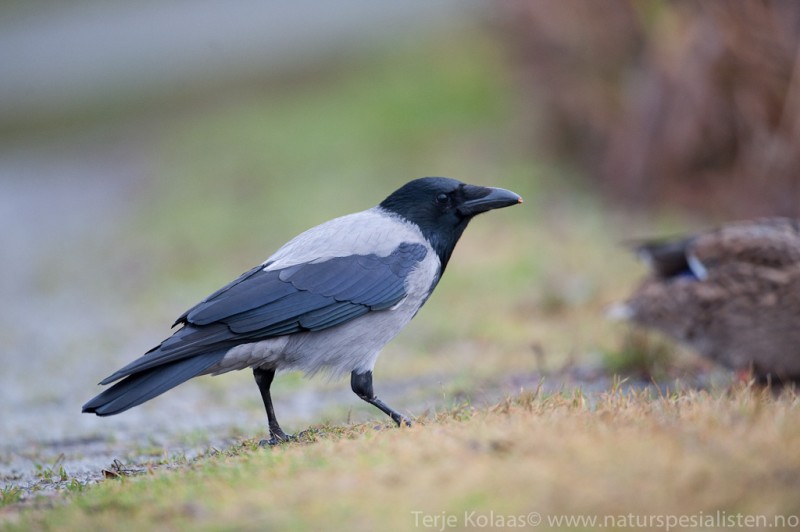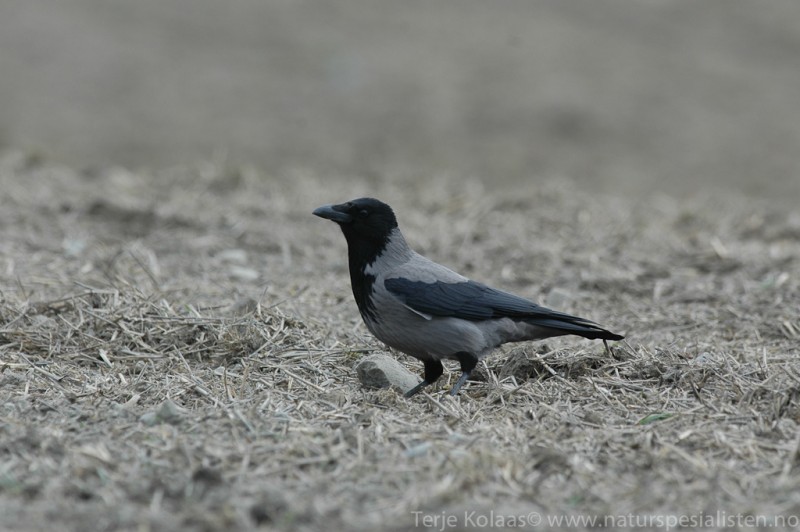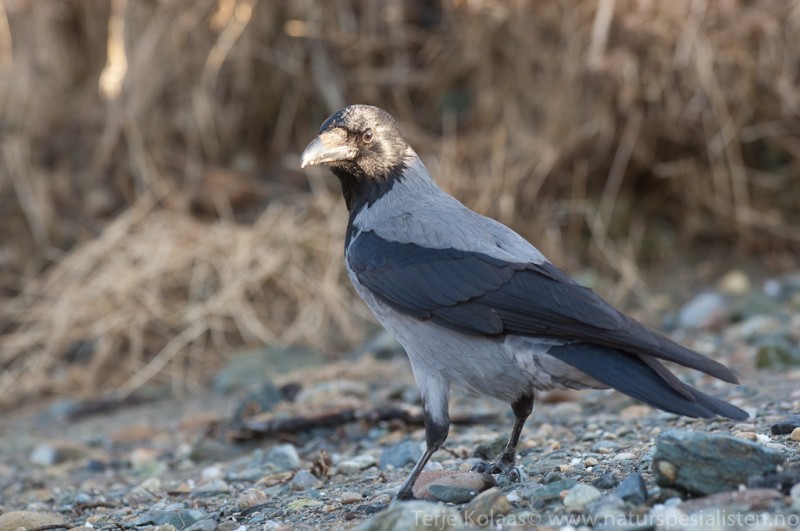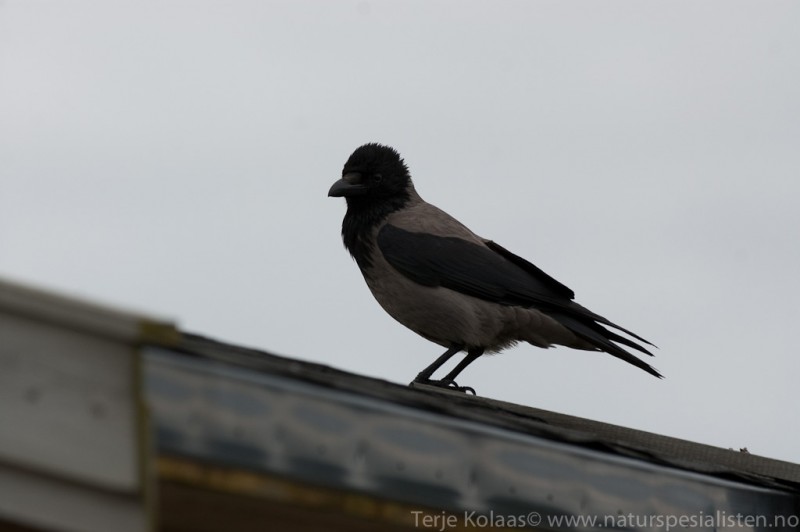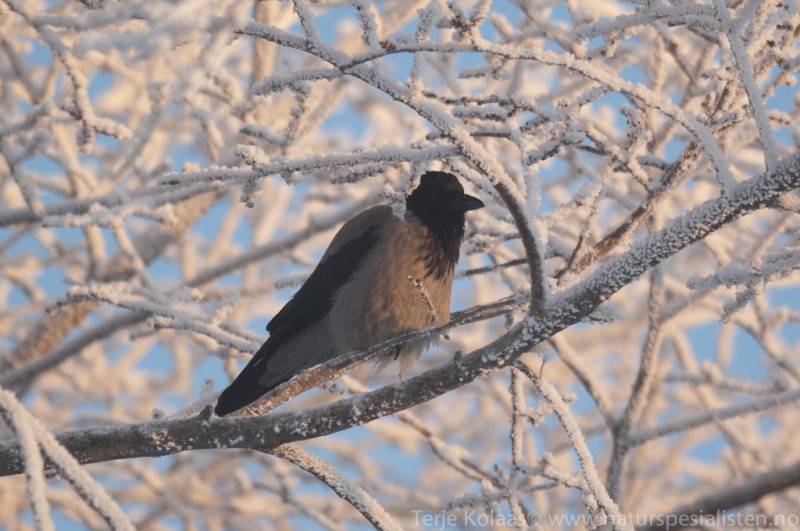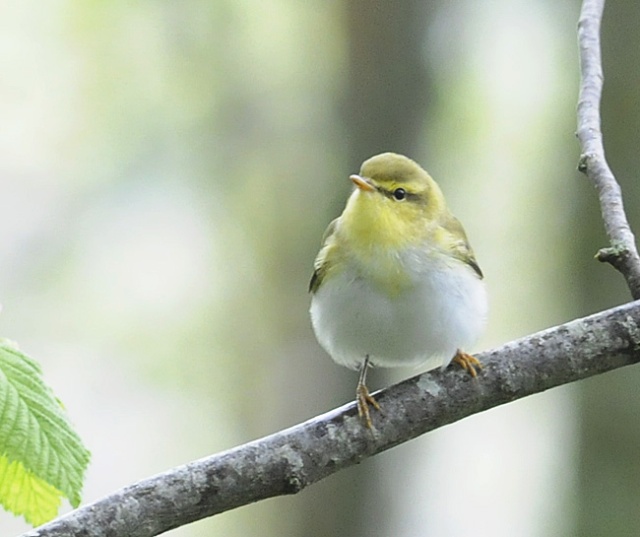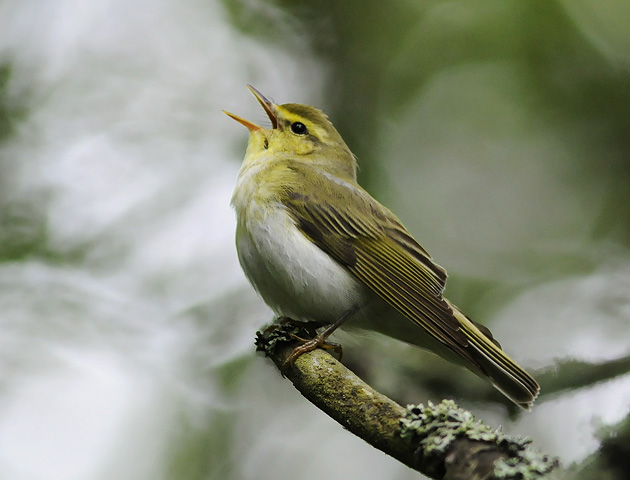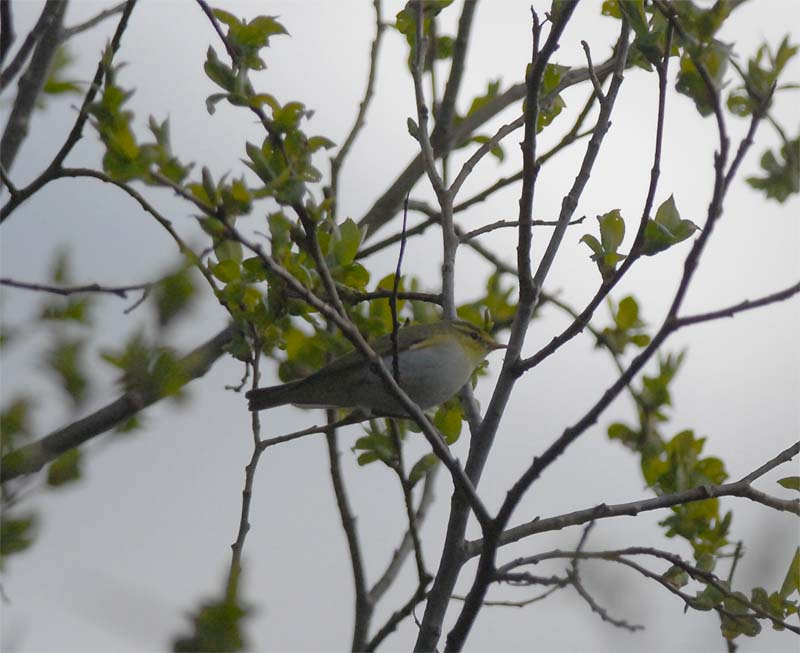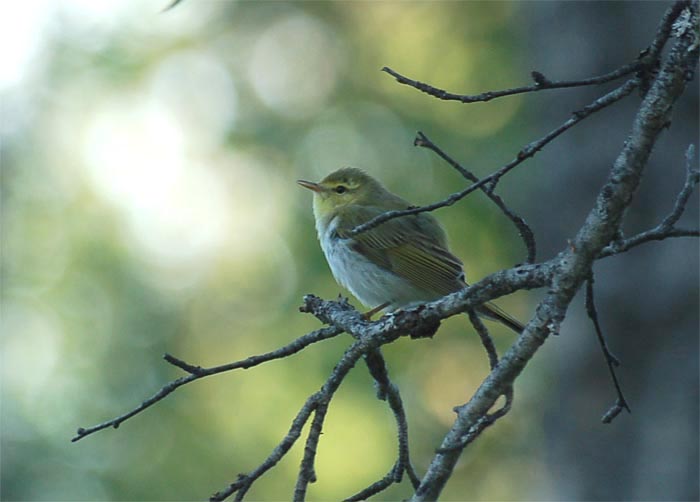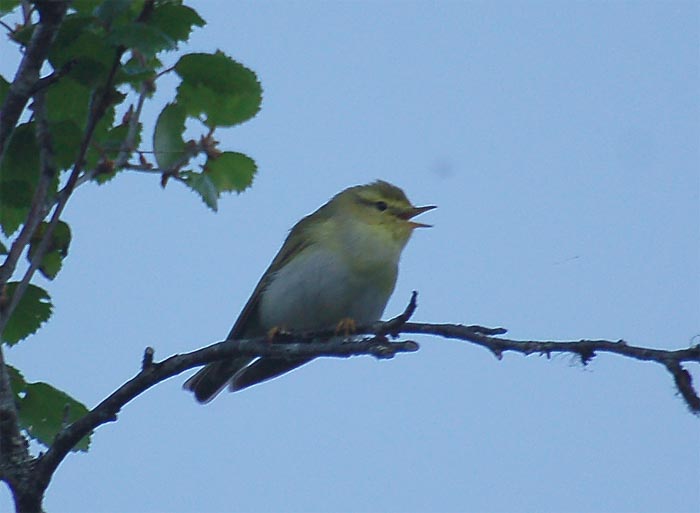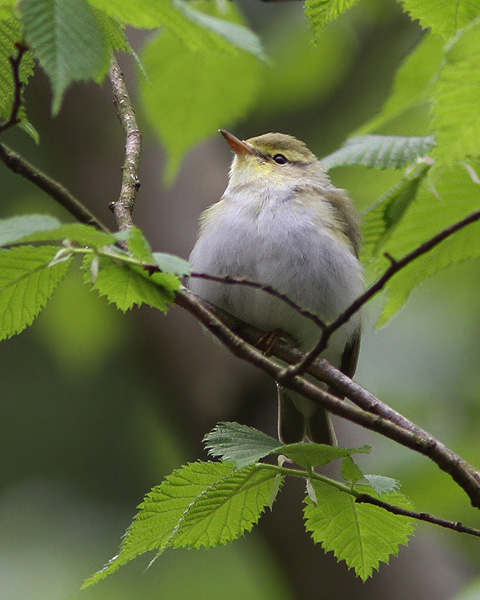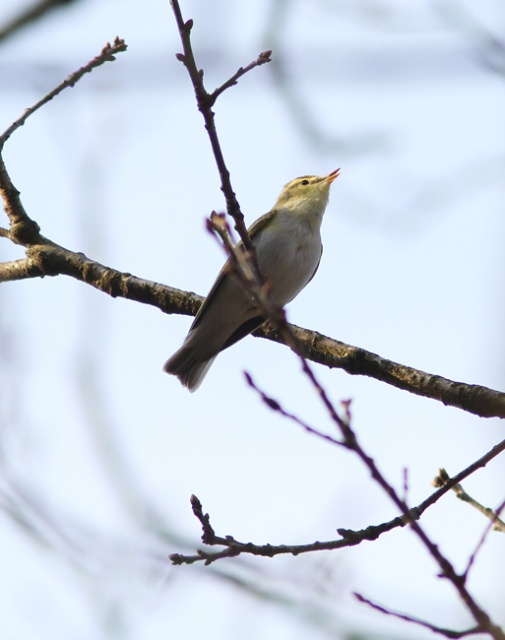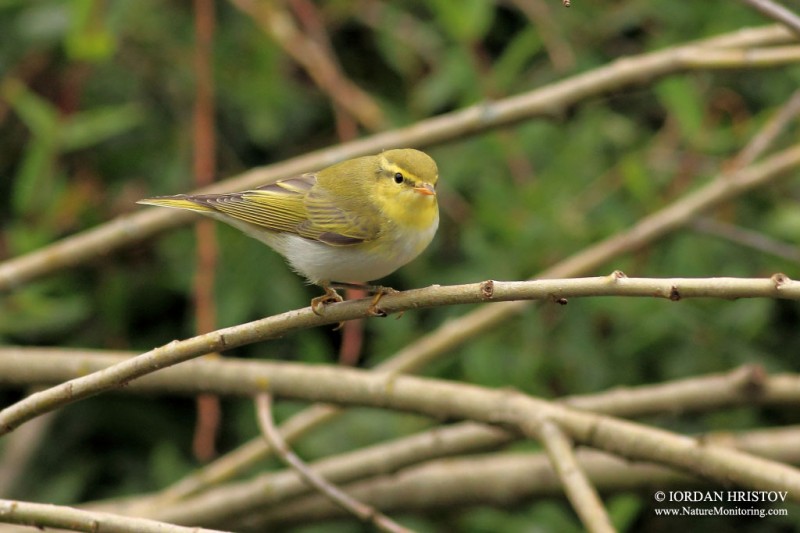Hooded Crow (Corvus cornix)
Wood Warbler (Phylloscopus sibilatrix)
Unmistakable, if not in silhouette. In poor light or at a distance, when the grey plumage is not visible, confusion with other crows is possible. Bill is deeper than in Rook, and the upper mandible more curved towards the tip. Smaller than raven, and much less heavy bill. The wings are shorter and more rounded, and the tail is not wedge-shaped. Posture less upright than Rook.
Sound:Cawing is aggressive and more raucous than in Rook, with more rolling r's. Has a large repertoire of seldom heard calls, and even sub-song. Many of these calls are surprisingly resonant and pleasant sounding, and sometimes resembles Raven. Probably impossible to tell from Carrion Crow with certainty by sound alone.
Cawing:
Distribution:
Wikipedia: map (se also Xeno-canto below)
Ecology:Birdlife ecology
Links:
Observation.org Latest observations
Image search Flickr NB! May give other species
CCMost distinct species of the genus. Most similar to Willow Warbler, but with much more contrasting plumage. Upperparts pure green. Throat and upper chest yellow, contrasting with pure white underparts. Distinct and strong yellow supercilium and black eye-stripe. Long primary projection, with primaries reaching middle of relatively short tail. Tertials with pale green fringes. Legs pale yellowish brown. Posture often horizontal with drooping wings.
Sound:Song distinct. An accelerating series of sharp, metallic "swee-swee-swee-swee". Typically with a staccato beginning. Pitch drops as the speed increases and the syllables fuses into a continuous trill. Often described as the sound of a spinning coin coming to rest on a glass table. Some phrases may be given in an almost even tempo, and may recall Bonelli's Warbler. Alternative (piping) song a series of 4-6 piping, plaintive and descending "pew - pew" calls. Resembles Willow Tit's song, but is softer with each note more evenly pitched. Contact call similar to individual syllables of piping song, but with heavier accent on the ending.
Song (two variants):
Distribution:
Wikipedia: map (se also Xeno-canto below)
Ecology:Birdlife ecology
Links:
Observation.org Latest observations
Image search Flickr NB! May give other species
CC
 English
English Albanian
Albanian
 Armenian
Armenian
 Bulgarian
Bulgarian
 Catalan
Catalan
 Croatian
Croatian
 Czech
Czech
 Danish
Danish
 Dutch
Dutch
 Finnish
Finnish
 French
French
 Georgian
Georgian
 German
German
 Greek
Greek
 Hungarian
Hungarian
 Italian
Italian
 Latvian
Latvian
 Lithuanian
Lithuanian
 Macedonian
Macedonian
 Norwegian
Norwegian
 Polish
Polish
 Portuguese
Portuguese
 Romanian
Romanian
 Russian
Russian
 Sami : Lule sami
Sami : Lule sami
 Sami : North sami
Sami : North sami
 Sami : South sami
Sami : South sami
 Scientific names
Scientific names
 Serbian
Serbian
 Spanish
Spanish
 Swedish
Swedish
 Ukrainian
Ukrainian


